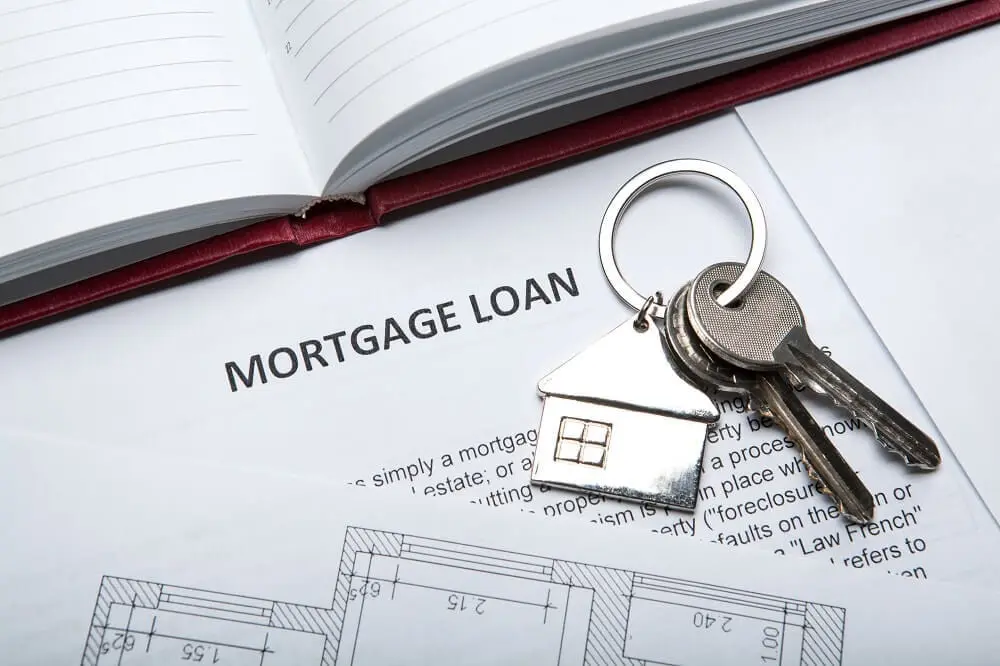
From its stunning landscapes and shorelines to its charming cities steeped in New England history, it’s no wonder why families decide to call Connecticut home. If you’re a homebuyer with your sights set on the Constitution State, make sure you’re saving up not just for your down payment, but for your closing costs, too. The average single-family home in Connecticut comes with a price tag of $252,000, according to April 2021 data collected by SmartMLS. While you may be saving up for a 20 percent down payment, it’s a common mistake to forget about closing costs.
In a nutshell, closing costs are an umbrella term encompassing all the fees involved in the final stages of your home purchase. It takes a village to buy a home: Before moving in, you’ll need to recruit the assistance of a lender, attorney, home inspector, appraiser, title company, insurance provider–and let’s not forget the taxman! Instead of paying each service provider one-by-one, these expenses are lumped together and paid in one single sum on your closing date.
So how much are closing costs in Connecticut? Here’s a closer look at how much you should expect to spend, what’s included on the tab, and how you can save thousands of dollars on a pricey step in the homebuying process.
How Much are Closing Costs in Connecticut?

Closing costs in Connecticut, on average, are about $2,717 for a home priced at $308,594, according to a 2021 report by ClosingCorp. That’s about 0.88 percent of the home price. ClosingCorp ranks Connecticut right in the middle of the pack, placing 22nd out of 50 states.
It’s worth noting Connecticut closing costs have been improving: In 2020, ClosingCorp listed Connecticut as the 7th state with the highest closing costs. Homebuyers spent on average $7,091, or 2.2 percent of their home’s sales price, on closing.
For comparison’s sake, the national average for closing costs for the purchase of a single-family home was $6,087 in 2021. District of Columbia leads the pack at 2.41 percent of the sales price, and Missouri has the least expensive closing costs at 0.72 percent of the sales price.
Keep in mind, these figures are based on a homebuyer coming up with a full 20 percent down payment, so they don’t need to factor in private mortgage insurance. Other state-specific expenses, like real estate transfer taxes, property taxes and additional insurance policies aren’t included. You may see your total closing costs bill increase depending on the price of your home purchase and where you live in the state but as a rule of thumb, closing costs come up to about two percent of your home’s purchase price.
Fairfield is home to Connecticut’s most expensive homes, with the average home sales price at $401,500 in April 2021. In this case, one to three percent on closing costs would be about $8,030. In Windham, one of the affordable cities in Connecticut, homebuyers’ closing costs estimate would be $3,580 for a home priced at $179,000.
What’s Typically Included in Connecticut Closing Costs?
With a closing costs bill totaling nearly $3,000 or more, every homebuyer may be wondering what they’re paying for. Turns out, your expenses start tallying up as soon as you apply for a home loan and until the ink is dry on the deed to your new home.
If you’re curious about the bill breakdown for your closing costs, here’s a closer look at the most common charges you’ll incur in Connecticut:
Loan Origination Fees

Unless you’re buying your new house with cold harsh cash, your first stop in your home buying journey will be to the bank to secure a mortgage. Regardless of where you’re buying a home in Connecticut, loan origination fees are likely one of the initial costs you’ll encounter.
Your lender will charge you a loan origination fee for setting up and processing your loan and for all the underwriting involved to get you pre-qualified and approved for a mortgage. Expect to spend about 0.5 percent to one percent of your loan amount on these fees. The average price of a home in Hartford in 2021, for example, is $250,000 – so loan origination fees could cost you somewhere between $1,250 and $2,500.
Credit Report Fee
Before your lender offers you a loan, they’ll complete a thorough underwriting process, which requires pulling your credit score. Count on your lender passing on any charges incurred for pulling your credit report. It’s usually about $25 at most. If there’s more than one borrower involved, double this expense for both credit reports.
Attorney Fees
Did you know 20 states require you to hire a real estate attorney when you buy a home? Having an attorney on your side at closing is mandatory in Connecticut, and for good reason: Your home purchase is easily the biggest purchase you’ll make in your lifetime, so you’ll want to make sure the transaction goes smoothly.
In Connecticut, it’s your lender that may make it a mandatory requirement to have your attorney conduct your closing as a condition of your loan. Count on your attorney to help with drafting and reviewing purchase agreements, reviewing contracts, and certifying deeds and other legal documents. They’ll even be there on closing day when the deed is transferred over.
Real estate lawyers can charge a flat fee or an hourly rate, to the tune of $150 to $300 per hour, for helping with your home purchase.
Escrow Fees
In addition to having an attorney present at closing, homebuyers in Connecticut still need to hire a title company to help with their home purchase. Your lawyer may be on the hook for a lot of the heavy lifting with your home purchase, but your title company is also on hand for crucial steps along the homebuying process.
A prime example is holding all your funds in a neutral third-party escrow account, so you aren’t paying the seller and other vendors until the ink is dry on your home purchase. In some cases, your lender may require that you–the buyer– keep funds in an escrow account for items, such as property insurance and taxes. These are often “prepaid expenses,” meaning they must be paid in cash at closing and can’t be rolled into home financing.
It’s worth noting, escrow fees are often where there’s room for negotiation. There are no hard and fast rules on who pays for escrow fees in Connecticut: They can be split down the middle or divvied up in various ways based on negotiations between the buyer and the seller–or builder.
Title Search and Title Insurance
When you buy property–whether a new build or an existing home–you must confirm that you’re going to own it free and clear. This is why your title company will carry out a title search to ensure the land you’re buying has no liens or lawsuits in progress.
Conducting a title search could cost hundreds of dollars or more depending on the complexity of the historical records on the property. Your title company is searching records dating back to at least three decades. This is a cost that could be split between buyer and seller, depending on the situation.
After the title search is complete, you’ll need to buy title insurance as a safeguard. If the title search misses something, title insurance acts as a second layer of defense so you aren’t responsible for any surprises. This is another mandatory purchase your lender will expect you to have paid for at closing, alongside homeowner’s insurance and private mortgage insurance.
Connecticut Real Estate Transfer Tax

Homebuyers in most of the country–minus 13 states–need to account for “real estate transfer taxes” in their closing costs, and that includes Connecticut. Transfer taxes are local and state government taxes that are paid as the seller transfers the home to the buyer. They can also be listed as a deed tax, mortgage registry tax, or stamp tax on your closing costs bill.
In Connecticut, state and municipal transfer taxes range from 1 percent to 2.75 percent of the sales price, depending on the property type and the municipality. The state tax is a rate of 0.75 percent for the first $800,000 of the sales price. After that, the rate jumps to 1.25 percent for homes of up to $2.5 million. Homes valued at more than that face a tax rate of 2.25 percent.
Municipal taxes range from 0.25 percent to 0.5 percent. You can look through Connecticut’s full transfer tax regulations on the state’s website.
Recording Charges
Once all the paperwork is certified and signed off on, copies of your deed and land records need to be made. Your town hall will charge you a small fee to keep a record of these documents.
Homeowner’s Insurance
Between your lawyer and title company provider, someone will nudge you to make sure you have adequate homeowner’s insurance paid for and in effect by closing. Homeowner’s insurance protects you in case of any physical damage to your home caused by fire, wind, vandalism and theft. It’s an essential purchase in the eyes of your lender who wants to make sure your assets are protected in case anything goes awry.
You’ll need to take out various additional policies, depending on your circumstances too. If you have antiques or expensive artwork and heirlooms, for example, you’ll need extra policies to cover your back. In Connecticut, some homes may need additional policies to cover for winter weather too.
Homeowner’s insurance is a “prepaid” expense, so you must pay for this upfront in cash. Usually, homebuyers pay for the first year in full at closing.
Property Taxes

Your property taxes are your contribution to keeping your city running, from funding local schools, libraries, police stations to paying for the basic maintenance of your community, such as sewage systems to roads and parks. The amount you’ll pay will depend on the tax rate in your county and the price of your home.
We hate to break it to you, but Connecticut has some notoriety when it comes to property taxes. They clock in at about 2.14 percent, making them the fourth-highest property taxes state in the country.
Homeowners in the Constitution State sitting on $217,500 of property (the national average used in research) spend $4,658 on property taxes annually. Keep in mind, the average American pays $2,471 on property taxes each year.
Count on paying for this expense, prorated, at closing. In some cases, you may be paying your seller back for the months they paid for in advance.
HOA Fees
While homeowners’ associations are popular in other states, only 12.9 percent of residents in Connecticut live in one. If you end up moving to an HOA community, you’ll have to earmark extra cash for HOA fees at closing.
HOA fees are similar to property taxes, but they fund the cost of the various amenities your association provides, from clubhouses, pools, gyms and community parks to security and fire alarm systems. The more sophisticated your HOA is, the more you’ll shell out in fees. Bear in mind that communities with aging buildings also tend to have higher HOA fees because more maintenance is needed.
If you’re eyeing a property, it’s worth asking what HOA fees are so you aren’t blindsided when you move in.
Appraisal and Home Inspection Fees
Regardless of where you’re buying in the country, the fate of your home loan often lies in the outcome of an appraisal and home inspection. Ultimately, your lender needs to know that the big purchase it’s helping you buy is a sound investment that won’t fall apart at the seams.
Before closing, your lender will send a third-party appraiser to your new home to check that it’s priced at the right value. This way if you default on your home loan, your lender knows they can sell the property to recoup the outstanding balance.
You’ll also need to recruit the help of a professional home inspector who will look at the nuts and bolts of your potential buy, from roof to foundation, to make sure everything is in working order. You’ll want your inspector’s all clear before agreeing to buy your new home. They can also flag any issues that you can ask the seller to fix before finalizing the deal.
In both cases, the onus is on the homebuyer to pay for these professional assessments. Count on spending up to $1,000 for each of these services in Connecticut. The price point will fluctuate depending on where you live in the state and the size of your home.
Private Mortgage Insurance
Homebuyers in Connecticut need to take out private mortgage insurance (PMI) if you aren’t providing a 20 percent down payment on your home purchase. Essentially, PMI allows borrowers to qualify for a conventional loan even if they put down only five to 19.99 percent of their mortgage.
It’s worth noting that while you’re the one buying this insurance, the coverage is solely for your lender. Because you haven’t put down 20 percent, PMI provides protection to your lender in case you default on your loan. In Connecticut, your lender will refer you to private insurance companies to help you with this purchase.
PMI typically ranges from 0.25 percent to as high as 2.25 percent of your outstanding loan balance, depending on the size of your down payment and your credit score.
How Can I Lower My Closing Costs in Connecticut?

Between saving for a down payment and new furniture, the last thing homebuyers need is another massive expense to pay. While closing costs are inevitable, there are some clever ways you can offset this expense.
Closing Cost Assistance
Right off the bat, the best way to cut back on your closing costs expenses is to take advantage of Connecticut’s range of homeownership assistance programs. These programs, run by the state and local cities and counties, are a major help with big ticket items by securing a low-interest rate home loan or providing grants or zero percent interest second mortgages to cover down payment and closing costs.
Every homebuyer should start with the Connecticut Housing Finance Authority (CHFA) and its series of programs. The CHFA Down Payment Assistance Program, for example, provides homeowners with a low-interest second mortgage of up to $20,000 to help you pay for your down payment and closing costs in one fell swoop.
There are special programs for teachers, police officers, and military personnel. You’ll receive an additional interest rate reduction on your first and second mortgage.
Think local as well. Some of the city programs in Connecticut are pretty generous: Fairfield, for example, provides homebuyers who qualify for assistance with up to $30,000 in a no-interest loan to cover your down payment. There are similar programs in Hamden, Hartford, and New Haven.
Seller Concessions

If you’re an expert negotiator, it’s worth trying your luck with your seller to see if they’ll budge on paying for some of the closing costs. If you’re in a buyer’s market, your seller property developer may agree to try to close the deal.
Your seller may offer to cover HOA fees or your first-year of insurance to help offset the other expenses you’re incurring at closing. If you’re buying a new home but need to pay for upgrades, you may be able to compromise with your builder, so they cover your closing costs.
Negotiate Fees
Go over your loan estimate and Closing Disclosure forms with a fine-tooth comb so you understand what you’ll be charged for and what ends up on the final tab at closing. If you see new fees or noticeable increases for certain closing fees, ask your lender to explain any disparities.
Depending on your relationship with your lender, you could ask them to omit certain expenses from the final bill, especially if you’re a repeat customer or a longstanding customer making use of multiple loan products. There are certain fees labeled as “junk fees” that you could start with, including rate lock fees, loan processing fees and broker rebates.
You could also ask your lender to stagger these expenses so they’re paid during the homebuying process in stages instead of all at once at closing.
If you’re shopping for a mortgage lender, they could compete for your business and offer to remove a handful of fees. Just make sure you’re choosing a reliable, reputable lender that will follow through on your needs
No-Closing-Cost Mortgage
Some homebuyers can opt into a “no-closing-cost” mortgage as a strategy to keep this expense at a minimum. In this case, your lender agrees to pay for part or all your closing costs, and you in turn pay a higher interest rate.
In the long run, this could cost you more money because of the bump in your interest rate, but for some homeowners, it may be their best choice.
Add Closing Costs to Home Financing
If you don’t have the upfront cash to cover your closing cost expenses, you may be able to roll this cost into your home loan. This means you’re off the hook for paying for these expenses on closing day, but you’ll make up for it via monthly mortgage payments that will be a bit higher. Ultimately, you’re paying interest on the closing costs tacked onto your first mortgage.
Check with your lender to see if this option is available. Keep in mind, not all closing costs can be included because some, such as homeowner’s insurance and property taxes, must be paid upfront.
Comparison Shop
Whether you’re shopping for a title company, an inspector, or a surveyor, shop around for the various services needed to make sure you’re getting the best deal. Some entities have go-to professionals on hand that they’ve approved, and using their referrals may come with steep discounts.
Other Connecticut Resources

Carmen Chai is an award-winning Canadian journalist who has lived and reported from major cities such as Vancouver, Toronto, London and Paris. For NewHomeSource, Carmen covers a variety of topics, including insurance, mortgages, and more.
 Stone Siding: Everything You Need to Know
Stone Siding: Everything You Need to Know